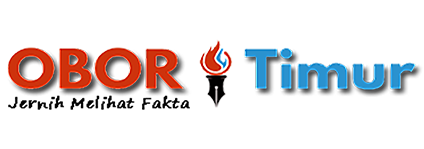Embarking on the journey of negotiating with a digital marketing agency in 2025 opens up a world of possibilities and challenges. From navigating the evolving landscape of digital marketing trends to selecting the right agency that aligns with your goals, this guide will equip you with the strategies and insights needed to secure a successful partnership.

As we delve into the intricacies of negotiation, setting expectations, and finalizing contractual agreements, you will discover the essential elements that pave the way for a fruitful collaboration in the digital realm.
Understanding the Landscape
In 2025, digital marketing trends continue to evolve rapidly, driven by advancements in technology and changing consumer behaviors. From artificial intelligence to voice search optimization, digital marketers are constantly adapting to stay ahead of the curve.
Current Digital Marketing Trends
- Personalized Marketing: Tailoring content and ads to specific audience segments for higher engagement.
- Video Marketing: Utilizing video content across platforms to increase brand visibility and engagement.
- Voice Search Optimization: Optimizing content for voice search queries to cater to the rise of smart speakers and virtual assistants.
- AI and Machine Learning: Using predictive analytics and automation to improve marketing strategies and campaign performance.
Key Challenges Faced by Digital Marketing Agencies in 2025
- Data Privacy Regulations: Stricter laws around data privacy impacting targeting capabilities and ad personalization.
- Content Saturation: Increased competition for consumer attention leading to content overload and decreased engagement.
- Ad Blockers: Growing use of ad blockers limiting the reach of digital advertising campaigns.
- Algorithm Changes: Constant updates to search and social media algorithms affecting organic reach and visibility.
Traditional vs. Modern Digital Marketing Approaches
- Traditional Marketing: Relies on offline channels like print ads, TV commercials, and direct mail for brand promotion.
- Modern Digital Marketing: Utilizes online platforms such as social media, email marketing, and to reach target audiences effectively.
- Targeting: Traditional marketing has broader targeting options, while digital marketing allows for precise audience segmentation based on demographics, behaviors, and interests.
- Measurability: Digital marketing provides real-time analytics and performance tracking, enabling data-driven decision-making compared to traditional methods.
Selecting the Right Agency
Choosing the right digital marketing agency is crucial for the success of your business. Here are some criteria to consider when evaluating agencies:
Industry Specialization
It is essential to look for a digital marketing agency that specializes in your industry. Industry-specific knowledge can give the agency a competitive edge in creating strategies that resonate with your target audience.
- Understanding industry trends and challenges
- Ability to tailor marketing strategies to industry-specific needs
- Experience working with similar businesses in your sector
Past Performance and Case Studies
Examining the past performance and case studies of a digital marketing agency can provide valuable insights into their capabilities and track record.
- Reviewing successful campaigns they have executed
- Assessing client testimonials and reviews
- Analyzing key performance indicators (KPIs) and metrics from previous projects
Negotiation Strategies
When negotiating with a digital marketing agency, it is essential to have a solid strategy in place to ensure a mutually beneficial partnership. Here are some negotiation tactics that can be effective in dealing with digital marketing agencies:
Role of Budget Flexibility
Having flexibility in your budget can play a crucial role in negotiations with a digital marketing agency. It allows you to adjust your spending based on the performance of the campaigns and make necessary changes to optimize results.
Key Performance Indicators
Identifying the right key performance indicators (KPIs) is vital when negotiating contracts with a digital marketing agency. These KPIs will help you measure the success of your campaigns and hold the agency accountable for delivering results
.
- Conversion Rate: Measure the percentage of website visitors who take a desired action, such as making a purchase or filling out a form.
- ROI (Return on Investment): Evaluate the profitability of your marketing campaigns by comparing the revenue generated to the amount spent on advertising.
- Click-Through Rate (CTR): Monitor the percentage of people who click on your ads after seeing them, indicating the effectiveness of your ad copy and targeting.
- Cost Per Acquisition (CPA): Calculate the average cost incurred to acquire a new customer, helping you assess the efficiency of your marketing efforts.
Setting Expectations
Setting clear expectations is crucial when negotiating with a digital marketing agency. It ensures that both parties are on the same page regarding goals, timelines, and deliverables. Clear communication and transparency are key components in this process.
Importance of Clear Communication and Transparency
Clear communication helps avoid misunderstandings and ensures that both the agency and the client have a mutual understanding of what needs to be achieved. Transparency builds trust and accountability, laying a solid foundation for a successful partnership.
Examples of Realistic Goals
- Increasing website traffic by 20% within six months
- Generating 100 new leads per month through digital advertising campaigns
- Improving conversion rates by 15% through website optimization
Significance of Aligning Objectives and Outcomes
During the negotiation process, it is essential to align objectives and outcomes to ensure that the agency's strategies are in line with the client's business goals. This alignment helps set realistic expectations and enables both parties to work towards measurable results effectively.
Contractual Agreements
When entering into a partnership with a digital marketing agency, it is crucial to have a well-defined contract in place to protect both parties and ensure a successful collaboration. A contract Artikels the terms, expectations, and responsibilities of each party, serving as a roadmap for the entire engagement.
Essential Elements in a Contract
- Scope of Work: Clearly define the services to be provided by the agency, including specific tasks, strategies, and campaigns.
- Timeline: Set realistic deadlines for deliverables and milestones to track progress effectively.
- Success Metrics: Establish key performance indicators (KPIs) to measure the success of the campaign and ensure alignment with business goals.
- Payment Terms: Specify the payment schedule, rates, and any additional fees or expenses involved.
- Termination Clause: Include provisions for terminating the contract early, outlining the process and any associated penalties.
Importance of Defining Deliverables, Timelines, and Success Metrics
Defining deliverables, timelines, and success metrics in the contract is essential for setting clear expectations and holding the agency accountable for results. By outlining specific goals and milestones, both parties can track progress, evaluate performance, and make data-driven decisions to optimize the campaign.
This clarity helps avoid misunderstandings and ensures that the agency's efforts are aligned with the client's objectives.
Role of Legal Counsel in Reviewing and Finalizing Contracts
Legal counsel plays a crucial role in reviewing and finalizing contractual agreements with a digital marketing agency. They help ensure that the contract is legally sound, protects the client's interests, and mitigates any potential risks or liabilities. Legal experts can provide valuable insights, identify any red flags or ambiguities, and offer guidance on negotiating terms that are favorable to the client.
Their expertise helps safeguard the client's investment and establish a strong foundation for a productive partnership.
Last Word
In conclusion, mastering the art of negotiation with a digital marketing agency in 2025 is a blend of strategy, communication, and alignment of objectives. By implementing the tactics and tips Artikeld in this guide, you are poised to forge strong partnerships and achieve your marketing goals with confidence and clarity.
FAQ
What are some negotiation tactics that can be effective with digital marketing agencies?
Some effective negotiation tactics include setting clear objectives, understanding industry trends, and being willing to compromise to reach a mutually beneficial agreement.
How important is budget flexibility in negotiations with digital marketing agencies?
Budget flexibility plays a crucial role in negotiations as it allows for adjustments based on evolving strategies and market conditions, ensuring optimal results within the agreed budget.
What should be included in a contract with a digital marketing agency?
Contracts should define deliverables, timelines, success metrics, payment terms, confidentiality clauses, and provisions for dispute resolution to establish a clear framework for the partnership.
 As we delve into the intricacies of negotiation, setting expectations, and finalizing contractual agreements, you will discover the essential elements that pave the way for a fruitful collaboration in the digital realm.
As we delve into the intricacies of negotiation, setting expectations, and finalizing contractual agreements, you will discover the essential elements that pave the way for a fruitful collaboration in the digital realm.

